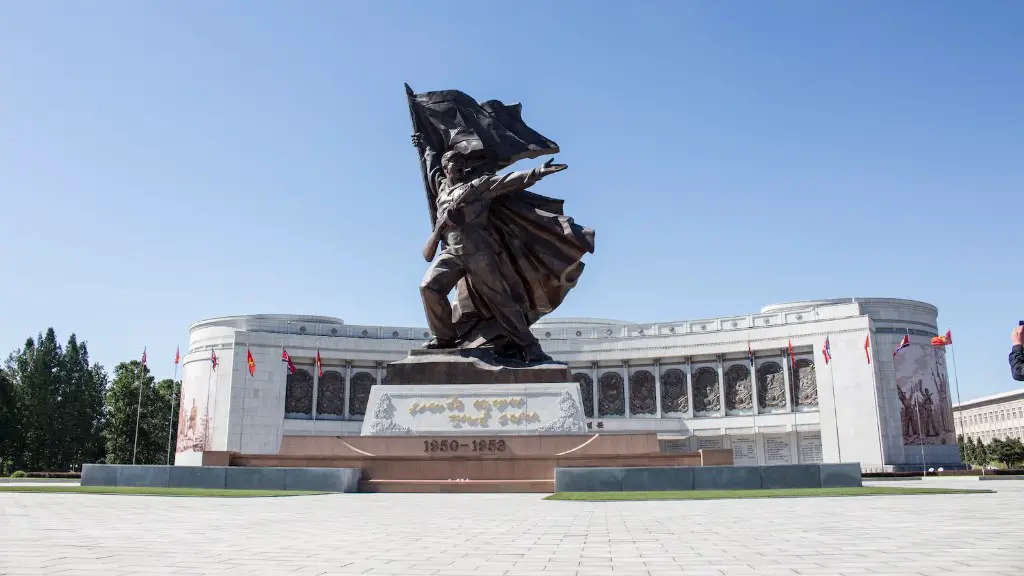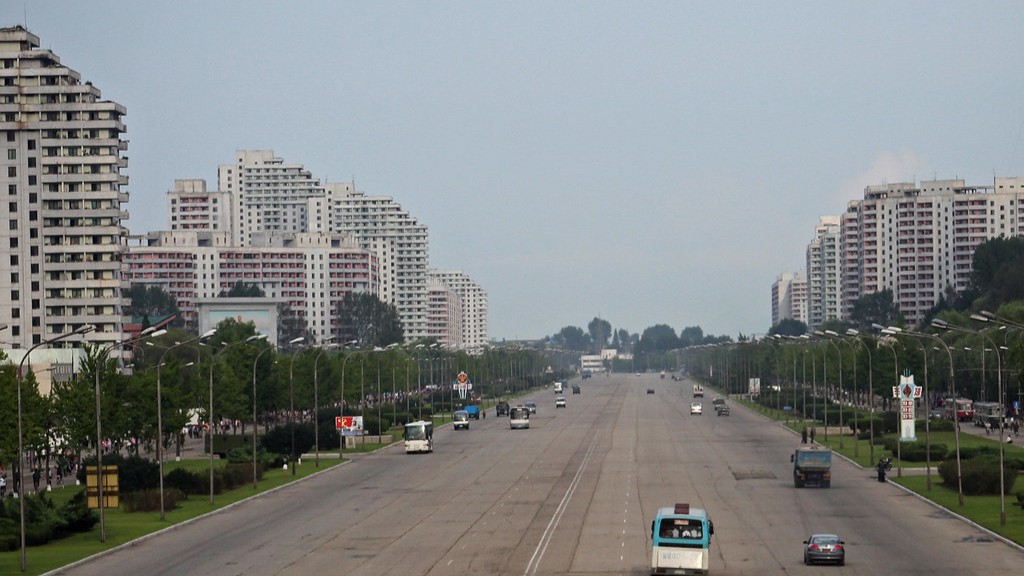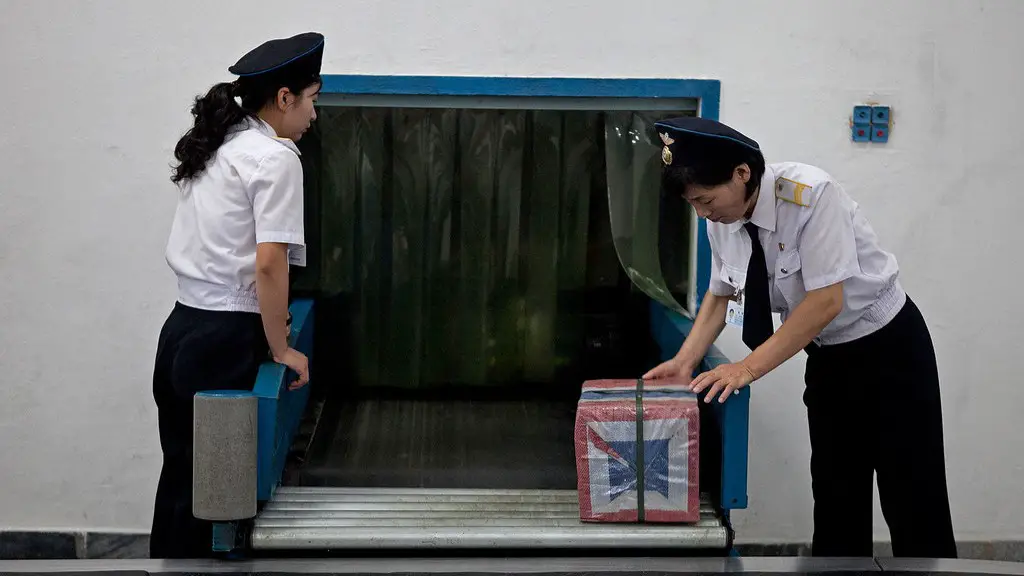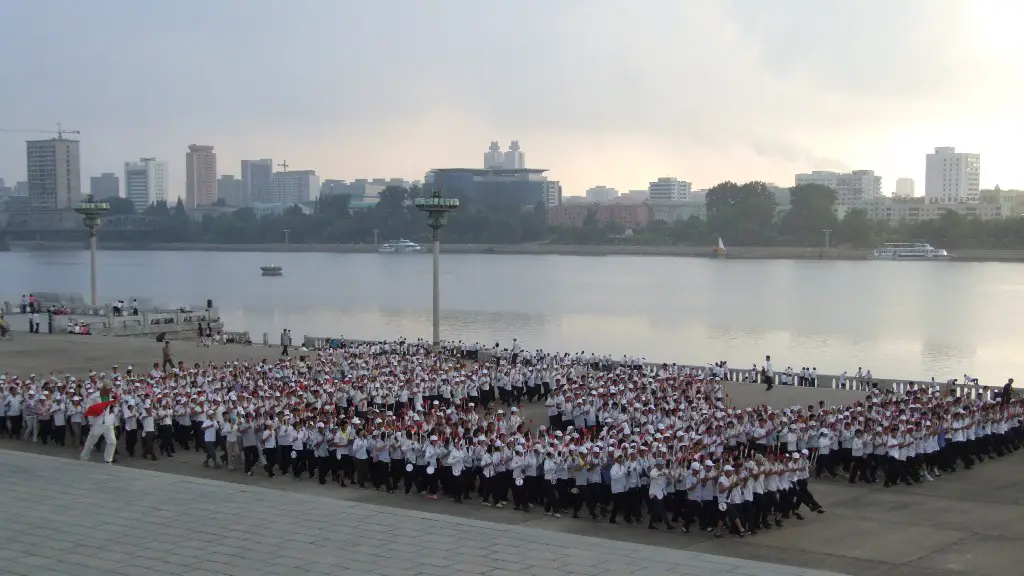History of North Korea and its Threats
North Korea has been a hotbed of tension and nuclear activity for many years. Since the end of the Korean War in 1953, the isolated nation has operated differently to many other countries in the region; its totalitarian regime has become an international concern. North Korea has repeatedly shown its willingness to threaten its enemies with military action, including the use of nuclear weapons.
The history of North Korea’s nuclear weapons program began in the 1970s during the Cold War. The country’s founder, Kim Il-sung, was determined to possess nuclear technology and successfully developed a number of short and intermediate range ballistic missiles. His ambitions were continued by his son, Kim Jong-il, and then his grandson, Kim Jong-un. Under their leadership, North Korea has continued to develop their nuclear technology and stockpile weapons.
Today, North Korea is believed to possess a number of nuclear weapons and has the capacity to deliver them across a range of locations. Beyond the threat of nuclear attack, North Korea is also one of the world’s biggest sources of cyber threats. From cyber espionage to distributed-denial-of-service attacks, North Korea’s cyber operations show a determination to target international organizations and companies for financial gain and geopolitical advantage.
North Korea has typically used a combination of military threats and international negotiations to achieve their objectives. In 2017, North Korea conducted a number of intercontinental ballistic missile tests in the hopes of gaining concessions from the United States, Japan and South Korea. Earlier this year, it similarly conducted submarine-launched ballistic missile tests, in blatant violation of UN Security Council resolutions.
The international community, particularly South Korea and the United States, have condemned North Korea’s behaviour and called for the end of its nuclear program. In response, North Korea has responded defiantly, making it clear it will not bow to international pressure. Despite its bellicose rhetoric, North Korea has indicated its willingness to engage in diplomatic negotiations and has shown signs of flexibility on specific issues such as sanctions.
Relationship between North Korea and US
North Korea and the United States have had a tumultuous relationship since the Korean War. Although the two countries have never normalized diplomatic ties, they have thawed relations in recent years as the United States has sought to find a diplomatic solution to North Korea’s nuclear ambitions.
From the U.S. perspective, North Korea is seen as both a rogue state and a security challenge. Exchanges between the formerly hostile countries have been accompanied by much posturing and saber-rattling. North Korea has consistently claimed its weapons program is for defensive purposes, but the U.S. has continually called for an end to its nuclear activities and for it to abandon its stance on the South China Sea.
The Trump administration has stepped up its efforts in containing North Korea’s nuclear ambitions, leading to further tension between the two countries. In 2017, the administration launched a campaign of “maximum pressure” against the regime, involving economic and diplomatic sanctions, as well as military exercises. The U.S. has also warned North Korea that it is willing to use military force if necessary, although the Trump administration has said it continues to prefer a “peaceful” solution.
The government of North Korea, for its part, has accused the U.S. of being dishonest in its negotiations and of wanting to keep the country in a state of perpetual poverty and servitude. North Korea has consistently maintained that its nuclear weapons program is purely defensive. In 2018, the two countries engaged in a number of diplomatic exchanges, with the Trump administration indicating it was still open to talks with North Korea. However, these fragile negotiations ultimately broke down, leading to further military escalation.
Threats to Neighbouring Countries
In addition to its threats to the United States and its regional allies, North Korea has long posed a threat to its neighbours. In recent years, North Korea has conducted a number of missile tests near the borders of South Korea and Japan and has threatened both countries with missile strikes. North Korea has also tested a number of nuclear weapons and has threatened to use these weapons against its neighbours if provoked.
The governments of South Korea and Japan have consistently emphasized the need for a diplomatic solution to the North Korean nuclear issue, but have been significantly hampered by the fact that North Korean representatives rarely participate in multilateral negotiations. Japan, in particular, has expressed its deepening fears as North Korean weapons tests have become increasingly frequent and sophisticated in recent years.
North Korea has also threatened South Korea with economic sanctions and threatened to cut diplomatic ties. Relations between the two countries were briefly normalized in 2018, but these negotiations ultimately broke down. Despite the failure of these talks, both countries remain committed to finding a peaceful solution.
North Korea and China
China is another key stakeholder in the dispute with North Korea and has a vested interest in maintaining stability in the region. China has traditionally been a key ally of North Korea and supplies much of the isolated nation’s energy and food needs. China also provides North Korea with diplomatic support, although Chinese leaders have recently expressed frustration with their North Korean allies.
China has consistently called for a peaceful solution to the North Korean nuclear issue, and has been involved in the Six-Party Talks, a series of multilateral negotiations aimed at finding a diplomatic solution to the conflict. China has been a strong opponent of sanctions against North Korea, instead preferring to focus on dialogue and persuasion. Chinese leaders have also warned the United States against using military force in the region, instead advocating for a diplomatic solution.
Despite its stance on sanctions, China has supported economic sanctions against North Korea while maintaining economic ties. China has also stepped up its enforcement of UN Security Council resolutions, although it has resisted American attempts to impose tougher sanctions on North Korea. As a result, China has been both a friend and an adversary to North Korea, seeking to both maintain stability in the region and prevent it from being used as a launching pad for nuclear weapons.
International Action
The threat posed by North Korea has prompted a number of countries to take action. The United Nations Security Council has repeatedly passed resolutions condemning North Korea’s nuclear activities and calling for an end to its weapons program. The United States, Japan, South Korea and other nations have joined forces in an effort to contain North Korea’s nuclear ambitions, with the U.S. taking a leading role.
At the same time, many international organizations, including the European Union and the International Atomic Energy Agency, have called for the return of North Korea to the nuclear Non-Proliferation Treaty and for the country to abide by its commitments and obligations under international law. The European Union has also provided aid to North Korea, and has helped to facilitate diplomatic negotiations between the two countries.
Beyond direct action, a number of countries have engaged in negotiations to try and resolve the conflict peacefully. High-level meetings between international diplomats, particularly the U.S. and North Korea, have taken place in recent years, although these attempts have not been successful in achieving a lasting solution.
The United Nations has also taken a stance on North Korea’s nuclear activities, condemning the country’s nuclear tests, missile launches, and other provocations. The UN has also called for the full implementation of Security Council resolutions, including requiring North Korea to destroy its nuclear weapons and for all states to abstain from providing financial or other material assistance to the regime.
Conclusion
North Korea’s nuclear ambitions pose a threat to the region and the world at large. The country’s ability to develop and deliver weapons, as well as its menacing rhetoric, have been the source of sustained international concern. The United States, Japan, South Korea, and other countries have stepped up their efforts to contain North Korea’s nuclear ambitions and find a diplomatic settlement to the long-running dispute. However, the resolution to the conflict remains far from certain and the threat posed by North Korea continues to cast a dark shadow over the region.





